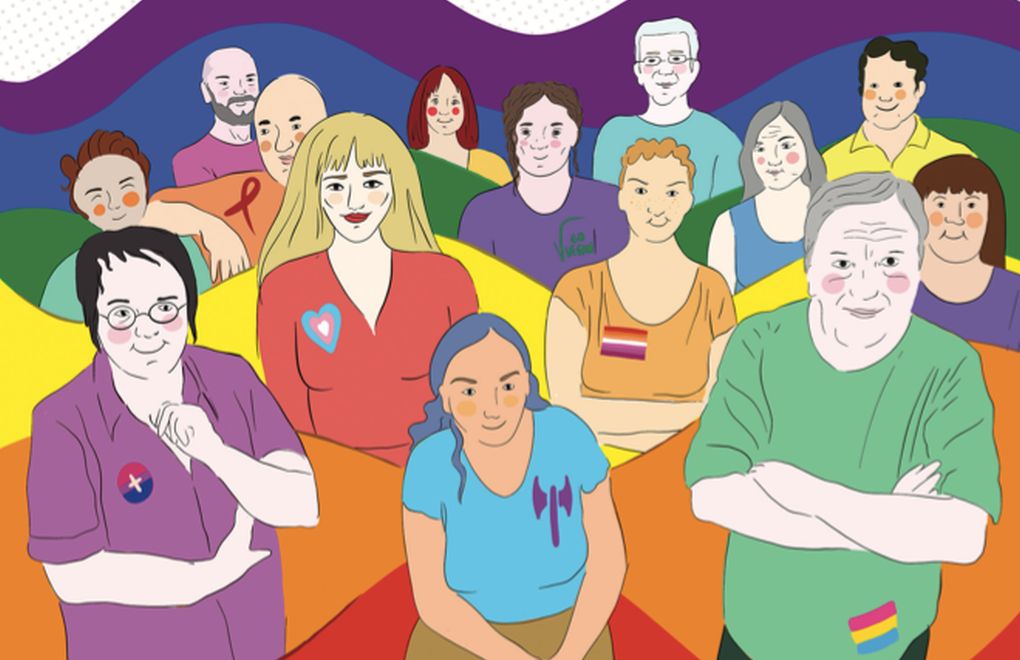Click to read the article in Turkish
The 17 May Association has released its "LGBTI+ Elders: Situation in Turkey and Around the World" report in Turkish and English.
Prepared by lawyer Yasemin Öz, the report specifically focuses on the existing legislation and practices on the rights of the LGBTI+ elderly as well as the current situation in Turkey and around the world.
Referring to the best practices both on the domestic and international levels, the report also shares recommendations.
'Cisgender, heterosexual family model protected by Turkey's Constitution'
According to the report, the current human rights situation for older adults in Turkey can be briefly summarized as follows:
"Due to the fact that cisgender and heterosexual family model protected by the Constitution gains importance in public policies of Turkey, elder care is a service loaded weight of households and women in terms of social values.
"On the other hand, it is a common situation that we frequently encounter that the unmarried family members have to bear the whole burden of elderly care in line with the social values.
"Therefore, we can easily assume that LGBTI+ persons also bear elderly care burden since Turkey does not have marriage equality.
"In addition, nursing home services for the elderly from the Ottoman era until today can be considered a practice to meet the care needs at least at a minimum level. It can be said that the low level of economic aids provided by the state to those who provide care for the patients and the elderly in recent years reflect an understanding of keeping the women at home, sending them back to their proper place in patriarchal terms by producing solutions with minimum cost, rather than thoroughly undertaking and covering financially.
'No legislation for elderly LGBTI+ persons'
"In Turkey's legal framework having limited number of legal regulations for LGBTI+ persons, there is no legislation for elderly LGBTI+ persons.
"Public policies towards LGBTI+ people gradually follow a course towards restricting fundamental rights and freedoms.
"Istanbul Convention's provisions prohibiting discrimination on SOGIESC (sexual orientation and gender identity) in domestic violence cases are used for justifying Turkey's possible withdrawal from the convention as requested by the conservative wing of the government.
"The Istanbul Convention, which includes regulations to prevent discrimination against LGBTI+ people in case of violence, has not yet been fully adopted by the domestic law, and no changes, regulations and practices protecting LGBTI+ people have yet been implemented. However, even the state's theoretical commitments not applied in practice can form the basis for
LGBTI+ exclusionary politics and discussions.
"There is no practice implemented regarding the LGBTI+ inclusive social services such as counseling centers, shelters, etc., which should be put into practice for protection against violence in line with the Istanbul Convention.
"In summary, there are no LGBTI+ inclusive positive public policies in practice in Turkey that LGBTI+ elders can take advantage of.
"In connection with this, there is no policy intended for LGBTI+ elders in many countries of the world, nor in Turkey.
"Services for special needs are not provided by service providers and private initiatives of NGOs to ensure elderly people access healthcare / housing/ care services are provided in a limited way."
'Regulations should be made LGBTI+ inclusive'
Against this backdrop, the report of May 17 Association concludes that "no legal arrangements, practice and public policy for the elderly LGBTI+ are available in Turkey, and the ones on the elderly in general are not comprehensive to meet the needs of the elders."
Specifically referring to the "Regulations of Darülaceze", which provides nursing home services and is run by the state, the report says:
"As clearly stated in Regulations of Darülaceze as a precondition for admission to this state-run facility, 'The persons should not have a mental disorder, the persons should not have an infectious or a contagious disease', also constitute a risk that may create discrimination in practice.
"Although the international regulations regarding elderly LGBTI+ are limited in number, international criteria, standards, practices and regulations in the field of old age should be adapted by being LGBTI+ inclusive and become national regulations and put into practice." (EMK/SD)





